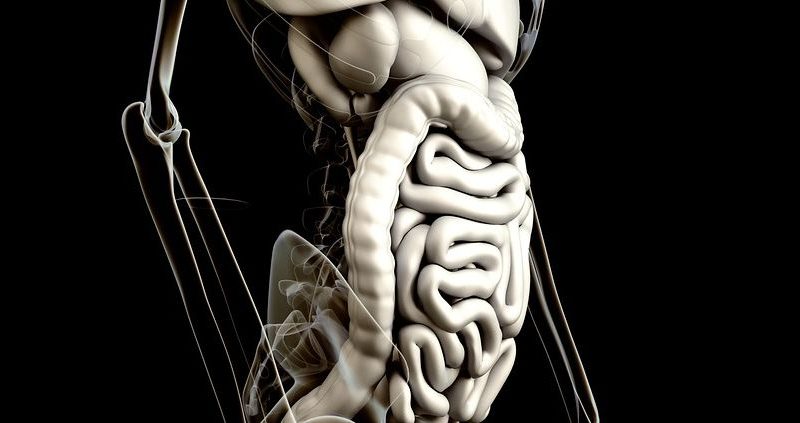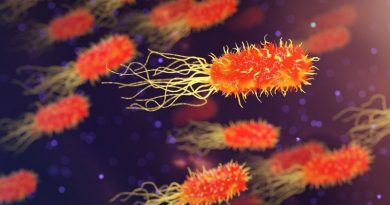Lilly’s Mirikizumab shows reduction of Intestinal Inflammation in Crohn’s Disease
Eli Lilly and Company revealed on Monday, new efficiency and safety results from the Phase 2 SERENITY trial assessing Mirikizumab in patients with moderately to severely active Crohn’s disease, a form of chronic inflammatory bowel disease (IBD), which is associated with abdominal pain, diarrhea, fever, weight loss that can end with fibrosis, intestinal obstruction and further complications.
During the 40-week continuation period of the SERENITY clinical study and the 12-week induction, period mirikizumab was administered via two methods and a variety of dosing regimens aiming to evaluate the safety and the effectiveness of the potential Crohn’s disease treatment. At Week 52, it was confirmed that there is evidence for two major clinical targets for Crohn’s disease, reflecting a significant reduction in inflammation of the lining of the bowel as seen by the endoscopy, and by the Patient Reported Outcomes (PRO) remission.
In an abstract session at the United European Gastroenterology Week (UEG Week) 2020, the detailed findings of the trial have been virtually presented.
Endoscopic response: Nearly 60% of patients achieved endoscopic response
Throughout the induction phase, patients were randomized to receive placebo or one of the three intravenous doses of mirikizumab through four treatment arms. Patients that demonstrated endoscopic progress at the 12 weeks induction were randomized to continue therapy with mirikizumab, given either intravenously or subcutaneously. Patients that did not demonstrate endoscopic progress or were assigned to the placebo arm at induction were selected to undergo intravenous therapy with mirikizumab.
PRO remission: More than 45% of patients achieved PRO remission
During the continued SERENITY study treatment period, patients experienced two main secondary improvements at Week 52, namely endoscopic progress (defined as at least 50 % reduction from baseline in the Basic Endoscopic Score for Crohn’s Disease [SES-CD]), as well as PRO remission (defined as a typical daily stool intensity of 2.5 or less and abdominal discomfort of 1 or not worse than average). The endoscopic remission can be measured as achieving a SES-CD score of < 4 for ileal-colonic disease or < 2 for isolated ileal disease and no subscore > 1.
Bruce E. Sands, MD, MS, Dr. Burrill B. Crohn Professor of Medicine, Chief of the Dr. Henry D. Janowitz Division of Gastroenterology at the Icahn School of Medicine at Mount Sinai said:
“Crohn’s disease is a serious and difficult-to-treat condition, and there is a significant need for additional treatments. I am encouraged by the results of this study, which showed response in both symptom relief and endoscopic response and remission at 52 weeks of treatment with mirikizumab.”
Amongst the subset of patients who achieved an endoscopic response at Week 12, 69.6% and 66.7% in the IV (n=23) and SC (n=24) groups, respectively, also had an endoscopic response at Week 52. Additionally, amongst those with endoscopic remission at Week 12, 50.0% and 64.3% in the IV (n=6) and SC (n=14) groups, respectively, also had endoscopic remission at Week 52.
Lotus Mallbris, M.D., Ph.D., VP of Immunology Development at Eli Lilly said:
“People who live with moderate to severe Crohn’s disease need additional treatment options and are looking for innovative therapies that can address their challenging and painful symptoms. With these encouraging Phase 2 results, we look forward to continuing our clinical program for mirikizumab with the hope that we can provide help for those living with Crohn’s disease.”
For those demonstrating endoscopic progress at Week 12, one patient in each category discontinued due to an adverse event (AE). Related frequencies have been identified in the IV and SC categories for treatment-emergent AEs and severe AEs. Nasopharyngitis (4.9 percent in the IV group, 13 percent in the SC group), headache (7.3 percent in the IV group, 8.7 percent in the SC group) and arthralgia (joint pain) (7.3 percent in the IV group, 13 percent in the SC group) were the most common treatment-emergent AEs reported. Lilly also introduced virtually additional findings for mirikizumab from the Phase 2 Crohn’s disease trial at UEG Week, as well as evidence on bowel urgency and quality of life in ulcerative colitis (UC) patients.
About Mirikizumab
Mirikizumab is a monoclonal humanized IgG4 antibody that binds to the interleukin 23 P19 subunit. It is currently studied for the treatment of immune disorders, including Psoriasis, Ulcerative Colitis and Crohn’s disease.
About Crohn’s Disease
Crohn’s disease is a progressive immune-mediated condition of the gastrointestinal (GI) tract. The disease, which is a form of inflammatory bowel disease (IBD), typically affects the small bowel (the ileum) and the beginning of the colon although it can affect any section of the GI tract, from the mouth to the anus. Around 10 million people globally are diagnosed with IBD, which encompasses Crohn’s disease and ulcerative colitis.
About the Phase 2 Mirikizumab Study for Crohn’s Disease
The Phase 2, multi-center, randomized, parallel-arm, double-blind, placebo-controlled trial of SERENITY was established to test the safety and effectiveness of mirikizumab in patients with moderately to severely active Crohn’s disease. At baseline, patients were randomized through four treatment arms (mirikizumab 200 mg, mirikizumab 600 mg, mirikizumab 1000 mg, and placebo) with a 2:1:1:2 allocation.
The primary endpoint was endoscopic improvement as estimated by the proportion of patients achieving at least 50 percent reduction from baseline on the Simple Endoscopic Score for Crohn’s Disease (SES-CD) at Week 12. In May 2019, Lilly reported Phase 2 results demonstrating more participants with moderate to severe Crohn’s disease receiving mirikizumab achieved clinical remission and response at 12 weeks. Overall, the safety profile at 12 weeks was compatible with that of mirikizumab in clinical trials of ulcerative colitis and with the class.
About Eli Lilly in Immunology
Lilly is bringing its heritage of championing groundbreaking, novel science to immunology and is committed to change what’s possible for people living with autoimmune diseases. There are still significant unmet needs, as well as personal and societal costs, for people living with a variety of autoimmune diseases and the companies goal is to minimize the burden of disease.
Through its immunology portfolio, Lilly is progressing in leading-edge scientific approaches dedicated to enhancing the experience of autoimmune disease care. The pharma giant has developed a deep pipeline and is focused on advancing cutting-edge research to develop innovative therapies and deliver substantial enhancements to benefit the patients and societies it serves.
About Eli Lilly and Company
Eli Lilly and Company is an American pharmaceutical company headquartered in Indianapolis and is a global healthcare leader that unites caring with discovery to create medicines that make life better for people around the world. Founded more than a century ago by Col. Eli Lilly, a pharmaceutical chemist and veteran of the American Civil War committed to creating high-quality medicines that meet real needs, today remains true to that mission in all its work. Across the globe, Eli Lilly’s employees work to discover and bring life-changing medicines to those who need them, improve the understanding and management of disease, and give back to communities through philanthropy and volunteerism.
To learn more about Lilly, please visit us at www.lilly.com and www.lilly.com/news.
This press release contains forward-looking statements (as that term is defined in the Private Securities Litigation Reform Act of 1995) about mirikizumab as a potential treatment for moderate-to-severe plaque psoriasis, Crohn’s disease and ulcerative colitis, and reflects Lilly’s current belief.
Original Source – Published Oct. 12, 2020 /PRNewswire/: https://www.prnewswire.com/news-releases/mirikizumab-shows-continued-symptom-improvement-and-reduction-of-intestinal-inflammation-in-patients-with-crohns-disease-in-52-week-phase-2-trial-301149778.html
Related Companies
Advertising
More headlines






